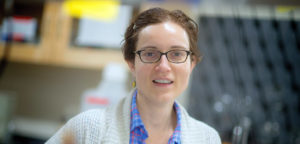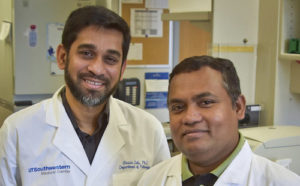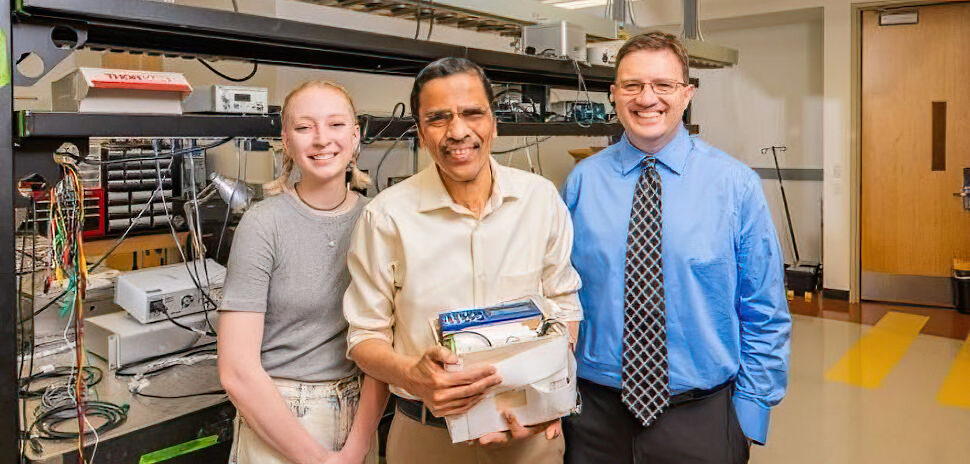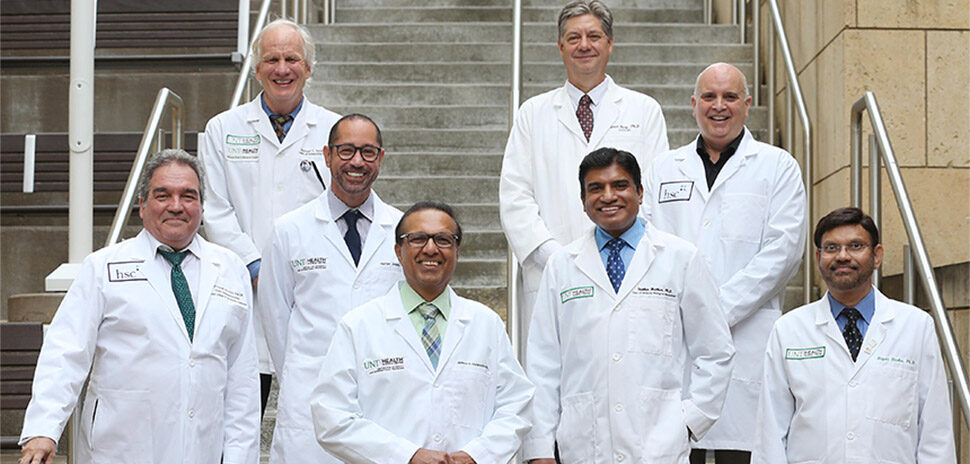![]() Every week, we do a little research of our own. We’re looking for scientists, professors, engineers, entrepreneurs—anybody, really—engaging in research and development across North Texas.
Every week, we do a little research of our own. We’re looking for scientists, professors, engineers, entrepreneurs—anybody, really—engaging in research and development across North Texas.
There’s plenty of good work being done. If you want to put R&D under your microscope, sign up for our e-newsletter.
UT Arlington biologist using $300K award to study mycobacteria
A biologist at the University of Texas at Arlington has received a three-year, $300,000 Academic Research Enhancement Award for her work studying mycobacteria, a type of germ that is hard to kill and has had a huge impact on human health.

Cara Boutte [Photo: UT Arlington]
One species of mycobacteria causes tuberculosis, while another causes leprosy, UTA said in a release.
Cara Boutte, assistant professor of biology, received the funding for a project titled “Environmental regulation of cell growth and division in mycobacteria.” The grant comes from the National Institute of General Medical Sciences, a division of the National Institutes of Health, UTA said.
Boutte is creating what UTA called a comprehensive molecular model of mycobacterial cell wall regulation to better understand how mycobacteria respond to stress. You can find out more here in Herb Booth’s report.
UTSW researchers find protein that suppresses common liver cancer

UT Southwestern doctors Hasan Zaki, left, and SM Nashir Udden. [Photo: UT Southwestern]
Researchers at UT Southwestern Medical Center in Dallas have discovered that a protein in the body’s innate immune system that responds to gut microbes can suppress the most common type of liver cancer, according to a release.
In a study published in the journal eLife, the researchers found that NLRP12, an innate immune sensor, has a protective effect against hepatocellular carcinoma (HCC), a deadly form of human cancer that is associated with chronic inflammation.
According to UT Southwestern, HCC is responsible for more than 80 percent of liver cancers nationwide, and is the third-leading cause of cancer-related deaths globally. HCC is the ninth-leading cause of cancer-related deaths in the U.S., according to the National Cancer Institute.
“Our study indicates that NLRP12 acts to suppress liver cancer by reducing inflammation and downregulating the signals involved in tumor progression,” said Dr. Hasan Zaki, assistant professor of pathology at UT Southwestern and corresponding author of the study. Zaki’s laboratory conducted the experiments on mice and on human cells from liver cancer patients, UTSW said.
You can find out more about the research here in Deborah Wormser’s report.
SMU grad student receives NSF Graduate Research Fellowship
Southern Methodist University graduate student Ophelie Herve is one of the recipients of the National Science Foundation’s Graduate Research Fellowship Program.
Herve, a first-year master’s student in mechanical engineering, will receive a three-year stipend of $34,000 to do research of her choosing and $12,000 to pay for her tuition and fees, SMU said in a release. She was one of 2,050 students from across the nation who was chosen to be a fellow this year.
Herve intends to use the funding to research how to create a prosthetic leg for amputees that it is controlled by their voluntary muscle contractions, so that the leg moves with the same precision as a natural human leg, SMU said.
“This research has the potential to have a broader impact by improving rehabilitative efforts in the medical field, enhancing injury prevention, and optimizing performance in the athletic industry,” she said in the release.
READ NEXT
Discovery: REHEAL Glove Advances at UTA; UTD Studies Why Women Get More Migraines
![]()
Get on the list.
Dallas Innovates, every day.
Sign up to keep your eye on what’s new and next in Dallas-Fort Worth, every day.





























